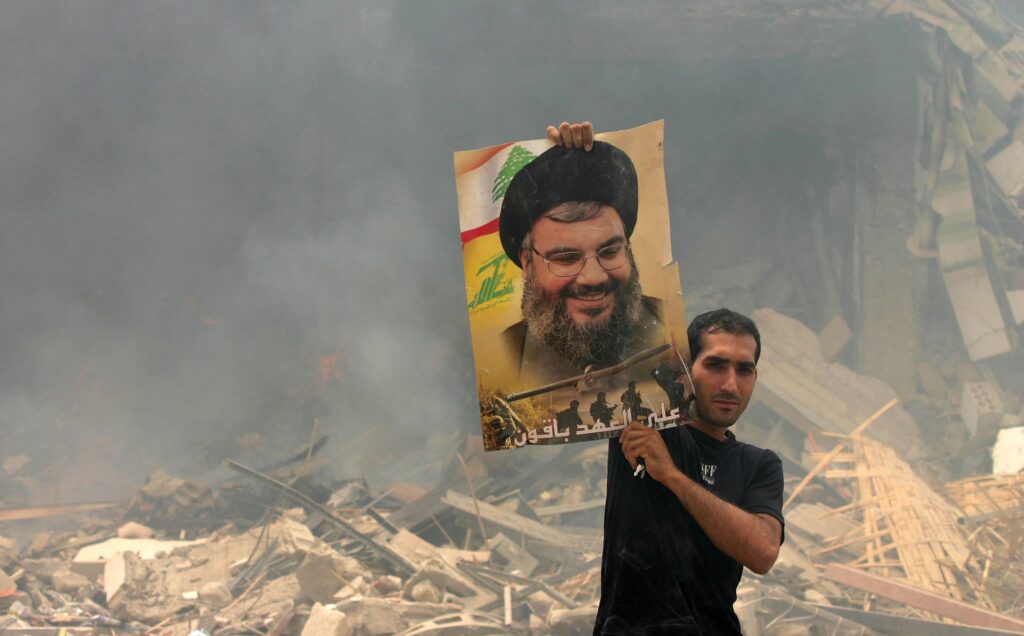On September 28, Hezbollah confirmed the death of its longtime leader Hassan Nasrallah following a massive Israeli airstrike in the Dahiyeh suburb of Beirut. The assassination of Nasrallah follows a series of escalatory measures that includes the disruption of Hezbollah’s communication network through an explosive pager operation, the assassinations of other senior leaders in the organization, and the widescale bombardment of Lebanon that has killed hundreds of people. With Israel now amassing troops on its northern border, questions abound as to what will come next. In this interview with Afkār, Lina Khatib, a leading expert on Hezbollah and regional security, examines the repercussions of Nasrallah’s death and recent developments on the organization and its strategic calculus.
1. Hezbollah has suffered significant leadership losses in the past few weeks, including most recently the loss of its secretary general. How would you assess the state of the organization from an operational standpoint, and how long will it take to recover?
Hezbollah’s arsenal remains significant, but its ability to use it is subject to both restraint and constraint. It is restraining itself from using heavier weaponry because it does not want to spark full-scale war with Israel. And it is constrained because any large, complex military operation requires the use of communication technology, which Israel has compromised, as well as a robust command, which Israel has significantly weakened through systematic assassinations. It will take Hezbollah a long time to regain some of its capacity, but the group will not be able to fully bounce back even in the future, unlike its recovery following its 2006 war with Israel.
2. If Israel was to initiate a ground invasion at this point, do you think Hezbollah would be able to mobilize an effective defense? Or are they able to push for a ceasefire agreement that negotiates a redeployment?
A ground invasion would be a quagmire for Israel because, despite Hezbollah’s heavy losses, the Lebanese group has a tactical advantage in asymmetrical ground warfare. Hezbollah managed to fight Israel for almost two decades during Israel’s occupation of southern Lebanon when the group had fewer resources than it has now. It will still be able to use its vast experience to mobilize a robust defense against Israel if there is a land incursion. In such a scenario, Hezbollah’s expertise and infrastructure in the south allow it to continue fighting for a long time, which would mean the continued absence of security for Israel’s northern areas.
3. How do you think the events of the past few days affect Lebanese politics writ large and Hezbollah’s place in it?
Hezbollah has translated its military might into political dominance in Lebanon. The ongoing weakening of Hezbollah will still leave it as the only armed political actor in Lebanon, and therefore an actor able to intimidate its political opponents. However, the trajectory of events indicates the start of a gradual decline in Iran’s regional influence in the Middle East. This will take a while to play out but can translate into a recalibration in the balance of power in Lebanon if the international community steps up efforts to restore the country’s sovereignty and state authority.


